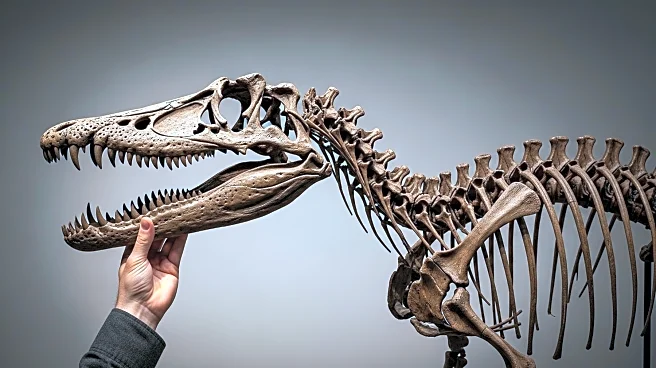What's Happening?
Scientists have uncovered a new dinosaur species in Argentina, named Joaquinraptor casali, which lived between 66 and 70 million years ago. This discovery was made in the Lago Colhué Huapi rock formation in Patagonia, where researchers found part of a skull, arm, leg, and tail bones. The dinosaur, part of the megaraptorans group, was known for its elongated skulls and powerful claws. A significant aspect of this find is the presence of a crocodile bone in the dinosaur's mouth, suggesting it may have been a top predator in its ecosystem. The fossil indicates the dinosaur was at least 19 years old when it died, although the cause of death remains unknown.
Why It's Important?
The discovery of Joaquinraptor casali is significant as it provides one of the most complete skeletons of megaraptorans, a group of dinosaurs that roamed South America, Australia, and parts of Asia. This find offers new insights into the feeding behaviors and ecological roles of these dinosaurs, suggesting they were apex predators in their regions. Understanding the diet and predatory strategies of megaraptorans can help paleontologists piece together the evolutionary history and biodiversity of the late Cretaceous period, contributing to broader knowledge of prehistoric life.
What's Next?
Further research is needed to explore the ecological role and behavior of Joaquinraptor casali. Scientists aim to study the fossilized remains in more detail to understand its place in the evolutionary timeline and its interactions within its ecosystem. This could involve comparative analysis with other megaraptoran fossils and examination of the sedimentary context to reconstruct the environment in which it lived.
Beyond the Headlines
The naming of Joaquinraptor casali holds personal significance for Lucio Ibiricu, a member of the discovery team, who named the dinosaur in memory of his son Joaquin. This highlights the human element in scientific discoveries, where personal stories and connections can influence the naming and interpretation of findings.









